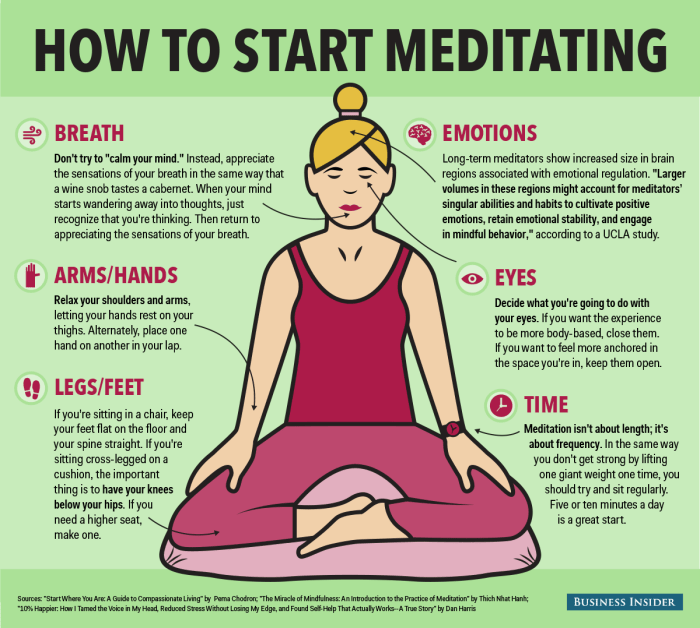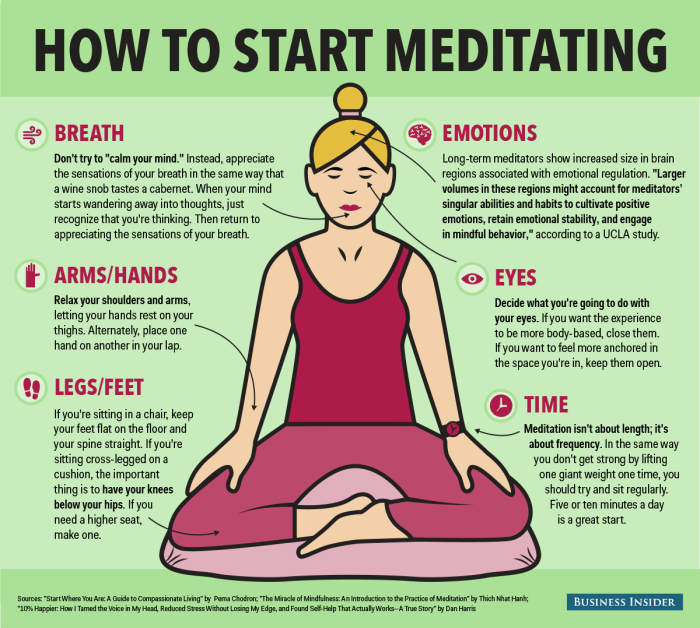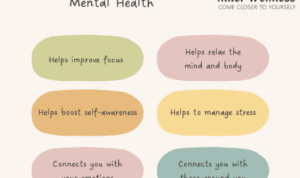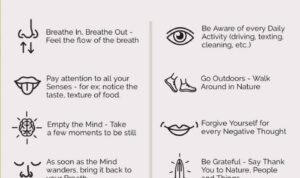Meditation for Beginners opens the door to a world of tranquility and self-discovery. Dive into the realm of mindfulness, peace, and mental well-being as we explore the art of meditation in this hip journey.
Introduction to Meditation for Beginners
Meditation is a practice that involves focusing the mind on a particular object, thought, or activity to achieve mental clarity, emotional calmness, and a sense of inner peace. For beginners, meditation can be a powerful tool for reducing stress, improving concentration, and enhancing overall well-being.
The Benefits of Meditation for Beginners
- Increased focus and concentration
- Reduced stress and anxiety levels
- Improved emotional regulation
- Enhanced self-awareness and mindfulness
Starting a Meditation Practice
- Begin with short sessions (5-10 minutes) to build consistency
- Find a quiet and comfortable space to meditate
- Experiment with different meditation techniques to see what works best for you
- Set realistic goals and be patient with yourself as you develop your practice
Mental and Emotional Well-Being
- Meditation can help reduce symptoms of depression and anxiety
- It can improve sleep quality and overall mood
- Regular meditation practice can lead to a greater sense of inner peace and contentment
Misconceptions About Meditation for Beginners
- Meditation is not about clearing the mind completely; it’s about observing thoughts without judgment
- You don’t need to sit in a specific pose or chant mantras to meditate effectively
- It’s normal to have distractions during meditation; the key is to gently bring your focus back to your breath or chosen anchor
Types of Meditation Practices

When starting a meditation practice, it’s important to explore different types to find what works best for you. Here are some common types of meditation suitable for beginners:
Mindfulness Meditation
Mindfulness meditation involves focusing on the present moment without judgment. It can help increase awareness, reduce stress, and improve mental clarity. Beginners can start by simply focusing on their breath or body sensations for a few minutes each day.
Guided Meditation, Meditation for Beginners
Guided meditation involves listening to a teacher or recording that leads you through a meditation practice. This can be helpful for beginners who may struggle to focus on their own. There are plenty of apps and online resources that offer guided meditations for free.
Loving-Kindness Meditation
Loving-kindness meditation focuses on cultivating feelings of compassion and love towards oneself and others. It can help improve relationships, reduce negative emotions, and increase overall well-being. Beginners can start by repeating phrases of goodwill towards themselves and others during their practice.
Comparison
Each type of meditation offers unique benefits and approaches to cultivating a peaceful mind. Mindfulness meditation helps to increase present moment awareness, guided meditation provides external support for beginners, and loving-kindness meditation fosters feelings of compassion and connection. Beginners can experiment with different types to see which resonates most with them and incorporate a mix of practices into their daily routine for a well-rounded approach to meditation.
Setting Up a Meditation Space: Meditation For Beginners
Creating a peaceful and comfortable meditation space at home is essential for beginners to establish a consistent practice. The environment plays a crucial role in helping individuals relax, focus, and connect with their inner selves.
The Importance of Lighting, Decor, and Ambiance
When setting up a meditation space, consider the lighting, decor, and ambiance of the room. Soft, natural light or dim lighting can create a serene atmosphere conducive to meditation. Decorate the space with calming colors, such as blues or greens, and incorporate elements like plants or artwork that evoke a sense of tranquility. Ambient sounds like nature sounds or gentle music can also enhance the meditation experience.
Incorporating Elements into the Space
To make the meditation space comfortable, consider adding cushions, blankets, or yoga mats to sit or lie on during practice. Comfortable seating arrangements can help maintain proper posture and reduce distractions. Candles or essential oils can also be used to create a soothing atmosphere and engage the senses during meditation.
Personalizing the Meditation Area
Personalizing the meditation area can make the practice more enjoyable and meaningful for beginners. Consider adding personal items like photos, crystals, or mementos that hold significance or bring a sense of peace. Creating a sacred space that reflects your personality and intentions can deepen the connection to the practice and enhance the overall experience.
Overcoming Common Challenges in Meditation
Starting a meditation practice as a beginner can come with its own set of challenges. It’s important to acknowledge these obstacles and have strategies in place to overcome them. Here are some common challenges you may face and tips on how to deal with them:
Distractions During Meditation
Distractions are a common issue when trying to meditate. Whether it’s external noises, racing thoughts, or physical discomfort, distractions can make it hard to focus. To combat this, try these strategies:
- Acknowledge the distraction without judgment and gently bring your focus back to your breath or mantra.
- Experiment with different meditation techniques to find one that suits you best and helps you stay present.
- Create a dedicated meditation space free from distractions to help you stay focused during your practice.
Difficulty Focusing and Restlessness
Restlessness and difficulty focusing can make meditation challenging, especially for beginners. To address this, consider the following tips:
- Start with shorter meditation sessions and gradually increase the duration as you build your focus and concentration.
- Use guided meditation apps or videos to help you stay on track and guide your practice.
- Practice mindfulness throughout your day to train your mind to stay present and focused, making it easier during meditation.
Managing Expectations and Staying Committed
Setting unrealistic expectations or feeling discouraged can hinder your meditation practice. Here’s how you can manage expectations and stay committed:
- Remember that meditation is a journey, and progress takes time. Be patient with yourself and celebrate small victories along the way.
- Set realistic goals for your practice and track your progress to stay motivated and committed.
- Establish a consistent meditation routine to make it a habit and prioritize self-care and mental well-being.
Cultivating Patience and Self-Compassion
Being kind to yourself and cultivating patience are essential components of a successful meditation practice. Here are some ways to cultivate patience and self-compassion:
- Acknowledge that it’s okay to have challenging moments during meditation. Treat yourself with kindness and understanding.
- Practice self-compassion by speaking to yourself in a gentle and supportive manner, especially when facing difficulties in meditation.
- Use loving-kindness meditation techniques to develop compassion towards yourself and others, fostering a positive mindset for your practice.
Resources and Tools for Beginner Meditators

Meditation can be a transformative practice, and having the right resources and tools can greatly support beginners on their journey to inner peace and mindfulness.
Recommended Books, Apps, and Online Resources
- Book: “The Miracle of Mindfulness” by Thich Nhat Hanh – a classic guide to mindfulness meditation.
- App: Headspace – provides guided meditations and mindfulness exercises for all levels.
- Online Resource: Mindful.org – offers articles, guided meditations, and resources for meditation beginners.
Technology Assistance for Beginners
Technology can assist beginners in their meditation journey by providing guided meditations, meditation timers, and mindfulness reminders through apps and online platforms.
Benefits of Attending Meditation Classes, Workshops, or Retreats
- Classes and workshops offer guidance and support from experienced teachers.
- Retreats provide a deeper immersion into meditation practices and allow for a break from daily distractions.
- Connecting with a community of meditators can offer encouragement and motivation for beginners.
Finding a Meditation Teacher or Community
Seeking out local meditation centers, yoga studios, or spiritual communities can help beginners find a meditation teacher or like-minded individuals for support and guidance.












